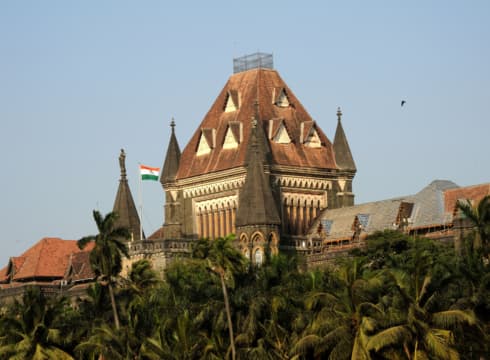The Bombay HC has raised questions over the central government's silence on the necessity of amending IT Rules to combat fake news on social media
A law would have to be struck down if its effect is unconstitutional, said Justice the bench while hearing the petition
Kunal Kamra, the Editors Guild of India, and the Association of Indian Magazines have filed petitions against the amendments, terming the new rules arbitrary and unconstitutional
Inc42 Daily Brief
Stay Ahead With Daily News & Analysis on India’s Tech & Startup Economy
The Bombay High Court (HC) on Thursday (July 6) reportedly pulled up the Centre over its silence on the necessity of the new IT amendments to identify and curb fake news.
While hearing the case, a division bench, comprising Justices Gautam Patel and Neela Gokhale, said that a law would have to be struck down if its effect is unconstitutional, no matter how high the motives are while framing rules.
The remark came as the HC presided over a series of petitions challenging the recently amended rules that grant the government the authority to identify and act against fake news on social media platforms.
Standup comedian Kunal Kamra, the Editors Guild of India, and the Association of Indian Magazines have filed pleas against the newly amended rules, arguing that they are arbitrary, unconstitutional, and will have a “chilling effect” on the fundamental rights of citizens.
The HC adjourned the matter and will continue hearing the case on Friday (July 7).
During the course of the hearing, senior counsel Navroz Seervai, representing Kamra, contended that the amended rules are indicative of the present government’s stance of ‘it is my way or the highway’.
“The government is saying it will ensure social media covers only what the government wants and what it (government) terms as the truth and ensure everything else is censored,” news agency PTI quoted Seervai as saying.
He criticised the government’s intention to assume the role of a ‘parent or nanny’ for the public. He also raised questions if the centre has ‘so little faith and confidence’ in the public that it has to act as a parent to shield users from fake news.
Seervai argued that the rules infringe upon the fundamental rights of citizens and urged the court to examine their constitutionality. He contended that the government cannot act as the ultimate arbiter of truth on social media and highlighted the importance of the platform for expression and information dissemination.
After hearing the two sides, Justice Patel remarked, “No matter how laudable or high the motives are, if the effect is unconstitutional, then it has to go.”
Quoting centre’s submission, the court highlighted that the Press Information Bureau (PIB) has been effectively combating fake news. Justice Patel questioned the need for altering the existing structure and bringing in new legislation to administer the space.
Seervai contended that the government cannot act as the ultimate arbiter of truth on social media and highlighted the importance of the platform for expression and information dissemination.
Kamra’s counsel further argued that social media intermediaries are primarily concerned with their own interests and show little regard for the content they host. He contended that it is not necessarily in the interest of social media intermediaries to retain the information in exchange for losing their safe harbour.”
Acknowledging this, the bench said that when intermediaries are not concerned with the content, they simply comply with government directives. Justice Patel highlighted that no intermediary company has filed a petition against the rules, underscoring their compliance with the government’s directions.
However, the central government has more or less stuck to its guns. In an affidavit filed with the court in April this year, the centre said that the fact-check panel is necessitated due to false information floating on social media platforms. The government then also said that Kamra’s petition was malafide, adding that the plea was an abuse of the process of law.
At the heart of the matter are the recently notified regulations covering the Indian digital space. On April 6, the government amended the Information Technology (Intermediary Guidelines and Digital Media Ethics Code) Rules, 2021, and proposed a host of new mandates, including the provision for a fact-checking unit to identify and flag false online content related to the government.
The move invited the ire of critics, with many approaching the court seeking quashing of the new rules. As pressure mounted, the centre assured the court that it would not activate the fact-checking unit until July 10. With the implementation of the move now in limbo, it remains to be seen what call the court takes on the matter.
{{#name}}{{name}}{{/name}}{{^name}}-{{/name}}
{{#description}}{{description}}...{{/description}}{{^description}}-{{/description}}
Note: We at Inc42 take our ethics very seriously. More information about it can be found here.


